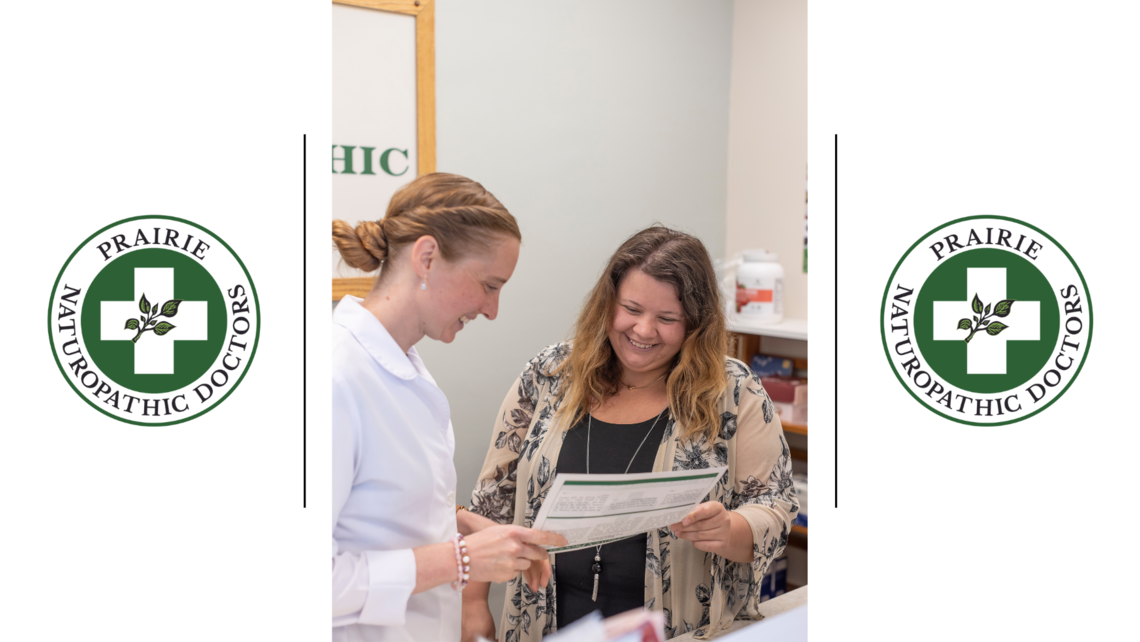Achieving Hormone Balance Through Naturopathic Medicine

Hormones are the unsung heroes of the human body, quietly working behind the scenes to regulate virtually every bodily function. From maintaining energy levels and metabolism to influencing emotional well-being and reproductive health, these chemical messengers ensure that your body operates smoothly. However, when hormone levels become imbalanced, the effects can ripple through your system, causing a range of physical, mental, and emotional symptoms.
At Prairie Naturopathic Doctors, located in Moorhead and Plymouth, Minnesota, we specialize in addressing hormonal imbalances through Naturopathic Medicine. Our approach integrates Holistic Health, Natural Remedies, Nutritional Therapy, Supplements, and Herbal Medicine to restore balance and empower patients to achieve optimal health.
In this blog, we’ll explore the essential role of hormones, identify the signs and causes of imbalance, and discuss how a naturopathic approach can guide you to lasting wellness.
The Critical Role of Hormones
Hormones are chemical messengers produced by glands in the endocrine system, including the thyroid, adrenal glands, ovaries, testes, and pancreas. These messengers travel through your bloodstream, delivering instructions that regulate critical processes such as:
- Metabolism: How your body converts food into energy.
- Growth and Development: Guiding physical growth from childhood through adulthood.
- Reproductive Health: Regulating menstrual cycles, fertility, and libido.
- Stress Response: Helping the body respond to challenges through cortisol and adrenaline.
- Mood Regulation: Balancing neurotransmitters like serotonin and dopamine for emotional stability.
When hormones are balanced, these systems function seamlessly. However, disruptions—whether due to lifestyle factors, stress, or aging—can cause dysfunction and lead to long-term health challenges.
Signs of Hormonal Imbalance
How can you tell if your hormones are out of balance? The symptoms vary based on the hormones affected but may include:
- Persistent fatigue, even with adequate sleep.
- Weight gain or difficulty losing weight.
- Thinning hair or unusual hair growth patterns.
- Irregular or painful menstrual cycles.
- Hot flashes, night sweats, or menopausal symptoms.
- Mood swings, irritability, or anxiety.
- Low libido or sexual dysfunction.
- Sleep disturbances, including insomnia.
- Digestive discomfort, such as bloating or constipation.
If you are experiencing these symptoms, a comprehensive hormonal assessment can help uncover the underlying causes and guide effective treatment.
Causes of Hormonal Imbalance
Hormonal imbalances rarely occur in isolation. They are often influenced by multiple factors, including:
1. Chronic Stress
Prolonged stress increases cortisol production, which can suppress other hormones, including those related to reproduction and thyroid function.
2. Dietary Choices
Diets high in refined sugar, unhealthy fats, and processed foods disrupt hormone production and metabolism.
3. Environmental Toxins
Everyday exposure to endocrine-disrupting chemicals (EDCs) in plastics, cosmetics, and cleaning products can interfere with hormonal communication.
4. Sleep Deprivation
Inadequate or poor-quality sleep affects melatonin, growth hormone, and cortisol levels, contributing to a cascade of imbalances.
5. Aging
Natural hormonal changes occur during life stages like puberty, pregnancy, menopause, and andropause. While these shifts are normal, they can still cause discomfort or health challenges.
6. Gut Health
An unhealthy gut microbiome can impair hormone detoxification and recycling, leading to imbalances like estrogen dominance.
Addressing these root causes is essential for restoring balance and achieving lasting health.
How Naturopathic Medicine Supports Hormonal Health
Naturopathic Medicine prioritizes treating the root causes of imbalance, rather than just masking symptoms. At Prairie Naturopathic Doctors, we employ a range of diagnostic and therapeutic strategies to create individualized care plans for every patient.
Comprehensive Hormonal Assessments
Understanding your unique hormonal profile is the first step in crafting an effective treatment plan. We use tools such as:
- Saliva Testing: To measure cortisol and reproductive hormone levels throughout the day.
- Blood Testing: To evaluate thyroid function, insulin sensitivity, and sex hormones.
- Comprehensive Health Histories: To uncover lifestyle, dietary, and environmental factors contributing to imbalance.
With this detailed information, we develop a customized approach tailored to your specific needs.
Nutritional Therapy: The Foundation of Hormonal Health
The food you eat directly influences your hormonal health. Nutritional Therapy is a cornerstone of naturopathic treatment, offering a practical and powerful way to restore balance.
Foods That Support Hormonal Balance
- Healthy Fats: Essential fats from avocados, nuts, seeds, and fatty fish like salmon are critical for hormone production.
- Leafy Greens: Spinach, kale, and Swiss chard are rich in magnesium, which supports adrenal and thyroid health.
- Cruciferous Vegetables: Broccoli, cauliflower, and Brussels sprouts assist the liver in detoxifying excess estrogen.
- Whole Grains: High-fiber foods like quinoa, oats, and brown rice help stabilize blood sugar and reduce insulin resistance.
Foods to Avoid
- Refined Sugars: Contribute to insulin spikes and systemic inflammation.
- Processed Foods: Contain artificial additives that disrupt the endocrine system.
- Excess Caffeine and Alcohol: Strain the liver and disrupt cortisol levels.
At Prairie Naturopathic Doctors, we guide you in making sustainable dietary changes that nourish your body and promote long-term hormonal health.
Natural Remedies for Hormonal Balance
Natural Remedies offer safe and effective ways to address hormonal imbalances by supporting the body’s innate ability to heal.
Probiotics and Gut Health
A healthy gut is crucial for hormone metabolism and detoxification. Probiotics from fermented foods like kimchi, sauerkraut, and kefir help maintain a balanced microbiome, ensuring proper hormone recycling.
Detoxification Protocols
Environmental toxins can mimic hormones, leading to imbalances. Supporting natural detox pathways with antioxidants, herbal teas, and proper hydration helps the liver efficiently process hormones.
Stress Reduction
Chronic stress is a common driver of hormonal disruption. Mindfulness techniques such as yoga, meditation, and journaling reduce cortisol levels and support overall balance.
Herbal Medicine for Hormonal Health
Herbal Medicine has been used for centuries to promote hormonal balance and alleviate symptoms naturally. Selecting the appropriate herbs and dosing and making the optimal adjustments throughout the healing process is key to successfully utilizing herbal medicine to balance hormones. Frequently utilized herbs include:
- Ashwagandha: An adaptogenic herb that reduces cortisol and improves adrenal function.
- Vitex (Chaste Tree Berry): Supports progesterone production, easing PMS and irregular cycles.
- Black Cohosh: Alleviates hot flashes and other menopausal symptoms.
- Maca Root: Boosts libido, energy, and hormonal balance.
- Milk Thistle: Supports liver detoxification to eliminate excess hormones effectively.
Our naturopathic doctors tailor herbal protocols to your unique needs, ensuring safe and effective outcomes.
Holistic Health Strategies for Hormonal Wellness
Achieving hormonal balance requires a Holistic Health approach that considers all aspects of your well-being, including lifestyle, emotions, and environment.
Movement and Exercise
Regular exercise is essential for maintaining hormonal health. A mix of:
- Low-Impact Activities: Walking and breathing exercises reduce cortisol levels.
- Strength Training: Improves metabolism and insulin sensitivity.
Optimizing Sleep
Sleep is critical for hormone repair and regulation. A consistent sleep schedule, free of blue light from screens, supports melatonin and growth hormone production.
Emotional and Mental Health
Stress, anxiety, and unresolved emotions can disrupt hormones. Mind-body practices like acupuncture, therapy, or breathwork help restore equilibrium.
Common Hormonal Conditions Treated at Prairie Naturopathic Doctors
Thyroid Disorders
Thyroid hormones regulate metabolism, energy, and mood. Conditions like hypothyroidism or hyperthyroidism can cause fatigue, weight changes, and emotional imbalances.
Polycystic Ovary Syndrome (PCOS)
PCOS is often characterized by insulin resistance, irregular cycles, and elevated androgens. Our holistic approach combines Nutritional Therapy, naturopathic physiotherapy, and herbal medicine to bring about correction.
Adrenal Fatigue
Prolonged stress can deplete cortisol, leading to fatigue, brain fog, and sleep disturbances. Establishing better lifestyle routines and utilizing adaptogenic herbs such as ashwagandha are key to recovery.
Long-Term Benefits of Hormonal Balance
Restoring hormonal harmony has far-reaching benefits, including:
- Enhanced Energy: Eliminate fatigue and boost vitality.
- Mental Clarity: Reduce brain fog and sharpen focus.
- Stable Moods: Experience emotional resilience and fewer mood swings.
- Weight Management: Achieve and maintain a healthy weight naturally.
- Improved Sleep: Wake up refreshed and rejuvenated.
Start Your Hormonal Health Journey Today
Your hormones are the foundation of your overall health. Through Naturopathic Medicine, Nutritional Therapy, Natural Remedies, and Herbal Supplements, you can achieve the balance needed to thrive.
At Prairie Naturopathic Doctors, we are dedicated to helping you feel your best with personalized care and a holistic approach. Schedule your consultation today and take the first step toward hormonal harmony and lasting wellness.


